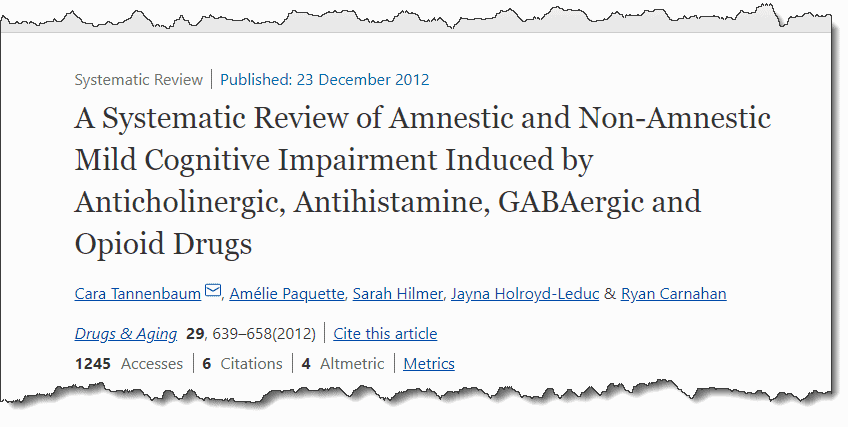
Most men don’t realize it’s happening…

—-Important Message for Men Who Want to Boost Memory—-
This special form of vitamin C can increase brain adrenaline, and protect mind and memory
You may have heard that the problem with regular vitamin C is that it doesn’t stay in the body long enough for you to benefit…
And it’s true. Your body eliminates it in under 5 minutes (as you can see when you pee).
Which is why I’ve developed a different type of vitamin C that stays in the bloodstream for HOURS not minutes.
And that way it has time to benefit all the organs, especially the brain.
I call it Super C and it can:
- Reduce inflammation by 45%
- Increase brain adrenaline, may prevent dementia and Alzheimer’s
- Improve blood flow all over the body
- Naturally lower blood pressure
- Boost the body’s natural immunities
- …and so much more…
Try my powerful Super C today for free
———-
Common over-the-counter substance causes brain damage
There are many treatments on the market that do really crappy things to your body — including giving you brain fog, or “mild cognitive impairment.”
I don’t know about you, but I like to keep my brain functioning at top notch.
That’s why you need to know that effects like this are a possibility BEFORE you take these treatments.

What are benzodiazepine treatments?
The most famous benzodiazepine treatment is Valium (diazepam), but it’s not the only one.
Other benzodiazepine chemicals include: alprazolam, lorazepam, oxazepam, triazolam, clonazepam, flurazepam, midazolam, and temazepam.
Benzodiazepines are ‘given out’ for severe muscle spasms, tremors, acute seizures, and alcohol and ‘chemical’ withdrawal symptoms. But their main uses are still in the treatment of anxiety and insomnia.
These treatments are used mostly for the treatment of anxiety and insomnia, and they work well for many people.
But they have a dark side that you may not know about.
What benzodiazepines do to your brain
One of the big problems with the benzodiazepine class of chemicals is what it does to your brain.
These chemicals give you serious brain fog that can manifest either as amenstic (where you forget what you did) or non-amnestic (where you are just foggy).
In studies of short-, intermediate- and long-acting benzodiazepine ‘chemicals’ (n = 68 trials), these ‘chemicals’ consistently induced both amnestic and non-amnestic cognitive impairments, with evidence of a dose-response relationship.
The more or higher dosage of these types of treatments you take, the worse it gets.
That means that if you are increasing your dosage overtime your brain is likely to degrade faster.
Benzodiazepines can cause physical dependence
Not only do these treatments cause cognitive impairment in many people, they also can also cause real physical dependence and withdrawal symptoms.
This is one thing that I don’t think is mentioned nearly enough.
In part because GABA neurons adapt to the presence of the ‘treatment’ and are underactive when it is withdrawn, benzodiazepines can cause physical dependence and a withdrawal reaction. With longer-acting ‘treatments,’ the withdrawal reaction usually develops after a month or two; with shorter-acting ‘treatments,’ it may take as little as a week of daily use.
With some of these treatments, physical dependence can happen in as little as a week. That to me seems very risky, and personally I wouldn’t do it.
Other treatments that can cause problems with memory
Benzodiazepines are terrible for cognitive function, but they aren’t the only treatment that can cause problems like this.
First generation antihistamines and tricyclic antidepressants can also cause brain fog — but it’s not as severe as benzodiazepines.
Non-amnestic mild cognitive deficits are consistently induced by first-generation antihistamines and tricyclic antidepressants.
I actually like a couple of the older antihistamines and go into that in some of my courses, but this is still an effect you should know about.
The bottom line here is to make sure you KNOW what the side effects of a treatment can be before you take it.
Doctors don’t always tell you that a treatment they are giving you can cause memory issues and cognitive decline.
It’s up to you to do the research to make sure you know if the reward is worth the risk.
There may be some amazing benefits to benzodiazepines short term, but you must be VERY cautious about being on them for any length of time.
Doctors under-estimate the damage they can cause.
—-Important Message for Men Hoping to Use Medicare—-
Congress is ransacking Medicare funds — here’s how to take advantage of a secret loophole

Deductibles keep rising…
…premiums are going up…
…and hard-working Americans who are finally able to retire are being forced to dip into their savings…
Just to cover the costs of treatments and surgeries that should already be covered by Medicare!
In fact, most Americans on Medicare today are paying MORE than they did on their employer-based health insurance.
And it’s the giant Big Pharma corporations who are benefiting the most…
That’s why I’m taking advantage of this secret Medicare loophole — protect your savings and enjoy massively good health this way…
———-
